2,4,5-TRIMETHYLANILINE
- CAS NO.:137-17-7
- Empirical Formula: C9H13N
- Molecular Weight: 135.21
- MDL number: MFCD00025201
- EINECS: 205-282-0
- SAFETY DATA SHEET (SDS)
- Update Date: 2024-07-11 19:21:31

What is 2,4,5-TRIMETHYLANILINE?
Chemical properties
white to light tan crystalline solid
The Uses of 2,4,5-TRIMETHYLANILINE
Manufacture of dyes, organic synthesis.
Definition
ChEBI: 2,4,5-Trimethylaniline is a substituted aniline.
General Description
White crystals or beige powder.
Air & Water Reactions
Insoluble in water.
Reactivity Profile
2,4,5-TRIMETHYLANILINE neutralizes acids in exothermic reactions to form salts plus water. May be incompatible with isocyanates, halogenated organics, peroxides, phenols (acidic), epoxides, anhydrides, and acid halides. Flammable gaseous hydrogen may be generated in combination with strong reducing agents, such as hydrides.
Hazard
Questionable carcinogen.
Health Hazard
ACUTE/CHRONIC HAZARDS: When heated to decomposition 2,4,5-TRIMETHYLANILINE emits toxic fumes of nitrogen oxides.
Fire Hazard
Flash point data for 2,4,5-TRIMETHYLANILINE are not available; however, 2,4,5-TRIMETHYLANILINE is probably combustible.
Safety Profile
Confirmed carcinogen with experimental carcinogenic and tumorigenic data. Moderately toxic by ingestion. Mutation data reported. When heated to decomposition it emits toxic fumes of NOx. Used as a dye, pigment, and printing ink. See also ANILINE DYES.
Properties of 2,4,5-TRIMETHYLANILINE
| Melting point: | 62 °C |
| Boiling point: | 232 °C |
| Density | 0.78 g/mL |
| refractive index | 1.5130 (estimate) |
| Flash point: | -5 °C |
| storage temp. | Keep in dark place,Inert atmosphere,2-8°C |
| pka | 5.01±0.10(Predicted) |
| color | White to pink |
| Water Solubility | 1.5g/L(28.70 ºC) |
| BRN | 2352436 |
| Stability: | Stable. Combustible. Incompatible with strong oxidizing agents. |
| CAS DataBase Reference | 137-17-7(CAS DataBase Reference) |
| NIST Chemistry Reference | Benzenamine, 2,4,5-trimethyl-(137-17-7) |
| IARC | 3 (Vol. 27, Sup 7) 1987 |
| EPA Substance Registry System | 2,4,5-Trimethylaniline (137-17-7) |
Safety information for 2,4,5-TRIMETHYLANILINE
| Signal word | Danger |
| Pictogram(s) |
 Flame Flammables GHS02  Exclamation Mark Irritant GHS07 |
| GHS Hazard Statements |
H225:Flammable liquids H319:Serious eye damage/eye irritation |
| Precautionary Statement Codes |
P210:Keep away from heat/sparks/open flames/hot surfaces. — No smoking. P280:Wear protective gloves/protective clothing/eye protection/face protection. P305+P351+P338:IF IN EYES: Rinse cautiously with water for several minutes. Remove contact lenses, if present and easy to do. Continuerinsing. |
Computed Descriptors for 2,4,5-TRIMETHYLANILINE
| InChIKey | BMIPMKQAAJKBKP-UHFFFAOYSA-N |
New Products
4-AMINO-TETRAHYDRO-PYRAN-4-CARBOXYLIC ACID HCL 4-(Dimethylamino)tetrahydro-2H-pyran-4-carbonitrile 4-Aminotetrahydropyran-4-carbonitrile Hydrochloride (R)-3-Aminobutanenitrile Hydrochloride 3-((Dimethylamino)methyl)-5-methylhexan-2-one oxalate 1,4-Dioxa-8-azaspiro[4.5]decane 5-Bromo-2-nitropyridine Nimesulide BP Aceclofenac IP/BP/EP Diclofenac Sodium IP/BP/EP/USP Mefenamic Acid IP/BP/EP/USP Ornidazole IP Diclofenac Potassium THOMAIND PAPER PH 2.0 TO 4.5 1 BOX BUFFER CAPSULE PH 9.2 - 10 CAP SODIUM CHLORIDE 0.1N CVS ALLOXAN MONOHYDRATE 98% PLATINUM 0.5% ON 3 MM ALUMINA PELLETS (TYPE 73) LITHIUM AAS SOLUTION 2-Bromo-1-(bromomethyl)-3-chloro-5-nitrobenzene 2-Bromo-3-nitroaniline N-(3-Hydroxypropyl)-N-methylacetamide 3-Bromo-6-chloropyridazine 4-ethyl-3-nitrobenzoic acidRelated products of tetrahydrofuran

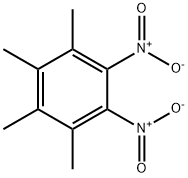
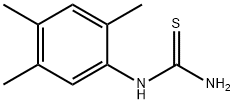

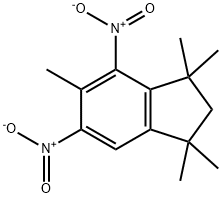
![3,5-DI((2-[4-(TERT-BUTYL)-2,6-DIMETHYL-3,5-DINITROPHENYL]-2-OXOETHYL)THIO)ISOTHIAZOLE-4-CARBONITRILE](https://img.chemicalbook.in/StructureFile/ChemBookStructure2/GIF/CB6437268.gif)
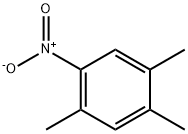
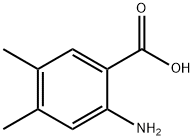
You may like
-
 2,4,5-Trimethylaniline solution CAS 137-17-7View Details
2,4,5-Trimethylaniline solution CAS 137-17-7View Details
137-17-7 -
 1-Methyl-6-oxo-1,6-dihydropyridazine-3-carbonitrile 98%View Details
1-Methyl-6-oxo-1,6-dihydropyridazine-3-carbonitrile 98%View Details
99903-60-3 -
 1823368-42-8 98%View Details
1823368-42-8 98%View Details
1823368-42-8 -
 2-(3-(tert-butyl)phenoxy)-2-methylpropanoic acid 1307449-08-6 98%View Details
2-(3-(tert-butyl)phenoxy)-2-methylpropanoic acid 1307449-08-6 98%View Details
1307449-08-6 -
 Ethyl 3-(furan-2-yl)-3-hydroxypropanoate 25408-95-1 98%View Details
Ethyl 3-(furan-2-yl)-3-hydroxypropanoate 25408-95-1 98%View Details
25408-95-1 -
 2-Chloro-5-fluoro-1-methoxy-3-methylbenzene 98%View Details
2-Chloro-5-fluoro-1-methoxy-3-methylbenzene 98%View Details
1805639-70-6 -
 1784294-80-9 98%View Details
1784294-80-9 98%View Details
1784294-80-9 -
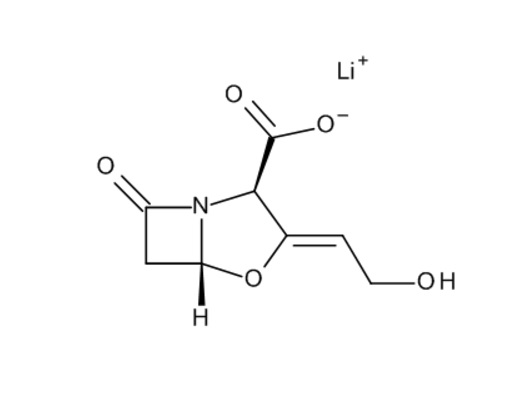 Lithium ClavulanateView Details
Lithium ClavulanateView Details
61177-44-4